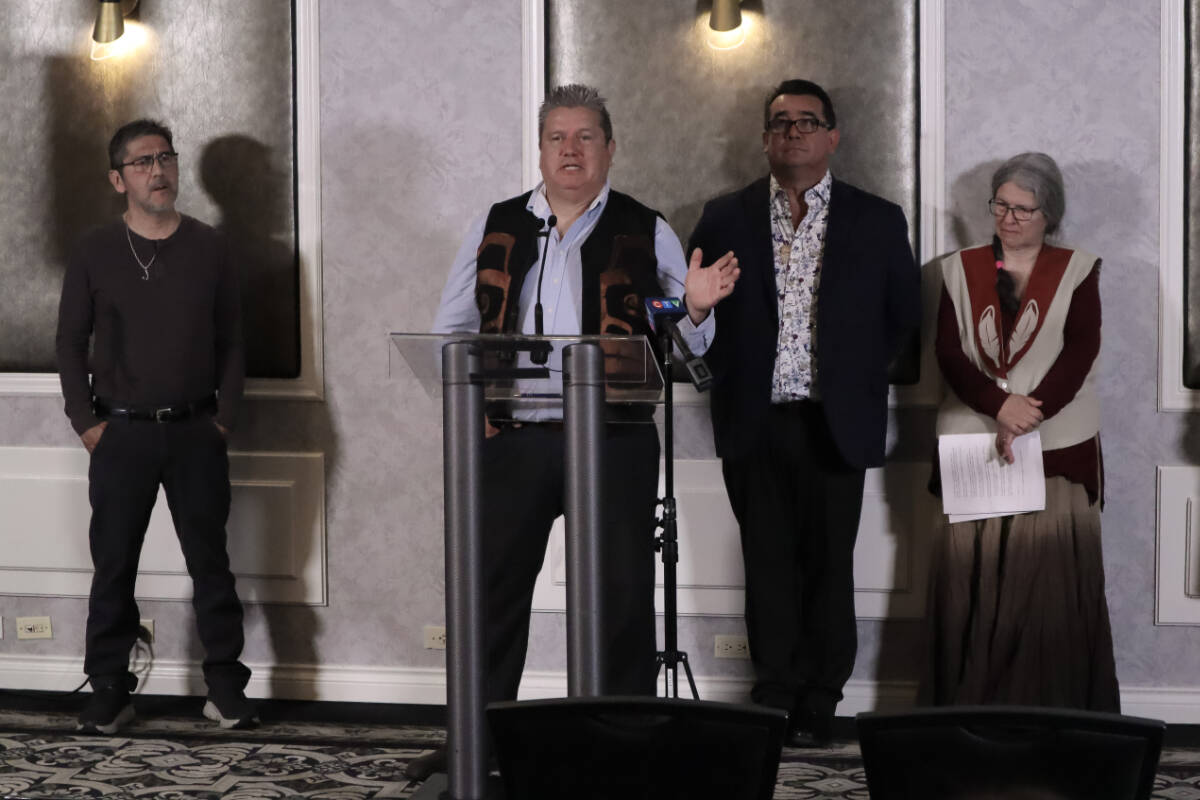‘Namgis First Nation notified the Ministry of Fisheries and Oceans (DFO) that they are re-activating its judicial review of Fisheries and Oceans Canada’s policy to not test for PRV before stocking open net-pen feedlots in B.C.
On Wednesday, May 15, the First Nation announced the resumption of the litigation after suspending it in 2021 while DFO implemented a federal mandate to remove open net-pen feedlots from B.C., which has yet to happen.
“We don’t really want to be back in court. We’ve learned the hard way that we have to fight to protect our fish and our rights,” said Hereditary ‘Namgis Chief Don Svanvik. “Our salmon are intrinsic to our being, they’re our sustenance, a critical part of our ceremony, they’ve been part of who we are since time immemorial. We see the writing on the wall. We see a DFO who has no intention of removing the fish farms as mandated by the prime minister.
PRV, or piscine orthoreovirus, causes heart and skeletal muscle inflammation in farmed Atlantic salmon, and it causes a disease that results in the blood cells of infected wild Chinook salmon to rupture, which can eventually kill the fish.
According to a news release, the PRV policy is one of the risk assessments that DFO relies on to deny that open net-pen feedlots stocked with Atlantic salmon do not harm wild Pacific salmon.
If ‘Namgis is successful and the PRV policy is again found unlawful, the lawfulness of any decisions relying on it will be called into question, including DFO’s impending Transition Plan, the renewal of aquaculture licences, and the licences the companies need to stock fish farms.
In 2023, Parliament’s Standing Committee on Fisheries and Oceans asked for an investigation of the value and accuracy of DFO’s risk assessments, including the PRV assessment, noting the suppression of scientific evidence noted the release.
The Public Sector Integrity Commissioner is currently investigating two DFO officials for preventing scientists communicating their research to the public, the media, and Parliament.
Bob Chamberlin, chair of the First Nations Wild Salmon Alliance, mentioned court rulings against the DFO in the past 15 years, and the Auditor General’s report to the Standing Committee on Fisheries and Oceans, which included “scathing comments” from scientists on DFO’s ability to regulate the industry.
“They have a lot of diseased fish in the oceans. They have bowed down to industry for stronger regulations, and somehow, we’re supposed to magically trust them this time,” said Chamberlin.
He also said he and UBC have asked for disease reporting forms about 17 months ago, and have yet to receive a response.
“It reflects what they’ve always done, so there’s no faith in DFO to do anything other than to continue to put wild salmon at risk for the blind support of this open ended fish farming industry,” he said.
UBC’s Institute for the Oceans and Fisheries noted in the release that their studies found that PRV-1 originates from the Atlantic Ocean, and in B.C., the virus has been continually transmitted between open-net salmon farms and wild Pacific salmon.
“We are not activists, we are First Nations standing up for constitutional rights,” said Chamberlin. “Salmon is not a choice for our people. It’s who we are, it’s vastly tied to our culture, and our traditions, and the lands that we come from.”
Read More: 1st-ever tournament for ancient Indigenous game held in Victoria

